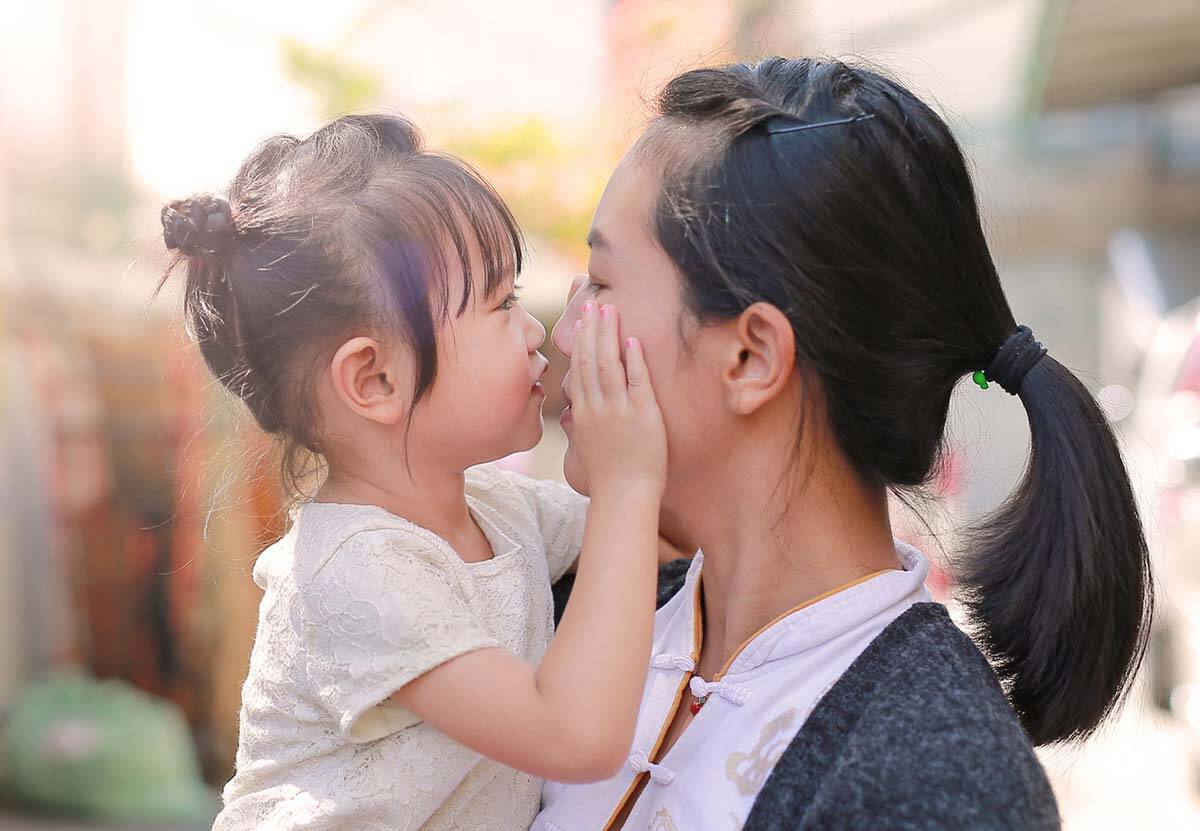Mothers who use the same utensils and drink from the same glass may increase their child’s likelihood of developing a cavity.

Although it is tempting to kiss your growing baby on the lips, you might want to fight the temptation. There is evidence that kissing a baby on the lips may increase a baby’s risk for dental cavities.
In fact, mothers who use the same utensils and drink from the same glass may increase their child’s likelihood of developing a cavity.
Passing Bacteria Can Cause Cavities
According to recommendations made by the American Academy of Pediatric Dentistry, if you share bacteria with your baby, you might be doing them harm. The bacteria called streptococcus mutans present in a mother’s mouth might cause damage to their growing youngster.
When you pass streptococcus mutans from your mouth to your child’s through transmission, you increase the chances that they will develop dental problems. Vertical transmission, or sharing vectors of contamination like spoons, glasses, or bowls, transfer harmful bacteria that the mother is carrying into a baby’s mouth, when they might not be capable of warding it off.
Tooth decay is the result of an infection in someone’s mouth that can be transmitted from one mouth to another in the same manner as a bacteria, or viral infection spreading from person to person.
The higher the amount of MS that a mother has in her mouth, the higher the risk she poses to transfer it to her baby. Behaviors as seemingly benign as kissing a baby on the mouth might be the vector that promotes cavity formation in a baby.
What that Means for Mother and Baby
The first thing to know is that limiting the amount of germ sharing from mothers to babies, by not kissing a baby on the mouth or sharing utensils, is an excellent way to prevent the potential that you can be passing harmful bacteria along to your baby. It also means that a mother should pay close attention to her oral health to limit transmission bacteria to her baby.
Reduce the risk of transmission by doing the following:
- As a mother, pay close attention to your oral care and oral care habits, which includes visiting the dentist regularly and flossing and brushing appropriately.
- Maximizing your oral care and paying close attention to the oral health of your growing child.
- When pregnant, make sure to have your dentist evaluate your oral health for preventative and or therapeutic maintenance.
- Take extra precaution to wipe down and sanitize your baby’s pacifier, not just when it is dropped, but frequently, to avoid bacterial buildup.
As a mother, you want the best for your child. You want your child to establish good oral habits that will last them a lifetime. Although it may be hard at first, limiting contaminating your child’s mouth with foreign bacteria from other sources, even your lips, is essential.
St. Louis Pediatric Dentist
If you have any questions concerning your child’s oral care, contact The Dental Anesthesia Center. We value our patient relationships, making it our priority to deliver gentle dental care that you and your child deserve.
Call Us Today
The first two board-certified Dentist Anesthesiologists in the state of Missouri.

